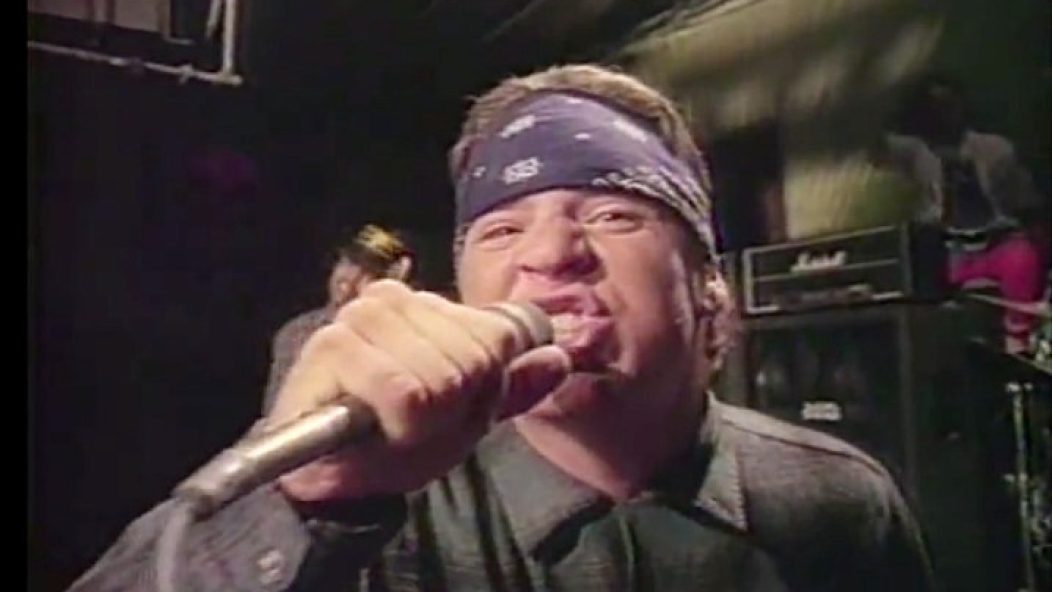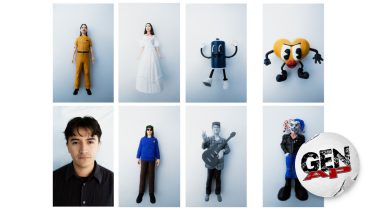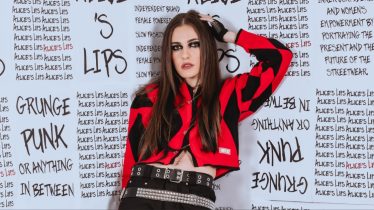
10 classic hardcore bands you need to get into now
Classic hardcore punk sowed the seeds by which today's alternative music blooms. Be it death metal, metalcore, pop-punk or screamo, the current iterations of aggressive rock wouldn't exist without our hardcore forefathers.
Here are 10 classic hardcore bands we think you'll love.
BLACK FLAG
The launch pad for both Keith Morris (now frontman for Off!) and Henry Rollins, guitarist Greg Ginn's ragtag punk band defined early Southern California hardcore. Initially active from 1976 to 1986, Black Flag's seminal albums Damaged and My War still influence scores of independent punkers. For a generational bridging of Flag's impact, see the early-aughts compilation Black On Black: A Tribute To Black Flag, which features Converge, the Dillinger Escape Plan and the Hope Conspiracy offering homage to the unmistakable “four bars” of pioneering hardcore punk.
Check out: “My War”
THE GERMS
When Dave Grohl namechecked “Manimal” on The Colour And The Shape's “Wind Up,” the Foo Fighter and former Nirvana drummer wasn't just honoring the Germs' classic (and only) full-length, (GI)—he was also shouting out founding Germ and Foo Fighters guitarist Pat Smear. Smear's legendary late-'70s punk outfit with venerable vocalist Darby Crash impacted succeeding waves of alternative bands, with everyone from Jane's Addiction to Red Hot Chili Peppers citing (GI)'s unlikely influence. Coincidentally, it's also one of Henry Rollins' favorite punk albums.
Check out: “Manimal”
MINOR THREAT
No list of influential hardcore bands would be complete without Minor Threat. Ian MacKaye's short-lived (1980–1983), straight-edge convoy birthed an entire movement of sober-minded, socially conscious punk bands. Remarkably succinct in mood and message, the group's Complete Discography clocks in at under an hour. MacKaye later established emo forebearers Embrace and, of course, post-hardcore heroes Fugazi. Thanks to him and co-owner Jeff Nelson, Dischord Records put Minor Threat's Washington, D.C. hardcore scene—and DIY ethics—on the map.
Check out: “In My Eyes”
BAD BRAINS
Another Washington, D.C. hardcore fixture, Bad Brains formed in 1977 and unleashed their groundbreaking debut in 1982. Originally released only on cassette, later reissues of the self-titled album included an emphatic quote from the Beastie Boys' Adam Yauch declaring it “the best punk/hardcore album of all time.” Bad Brains' original lineup of singer H.R., guitarist Dr. Know, bassist Darryl Jenifer and drummer Earl Hudson have reformed sporadically over the years, dabbling in dub, reggae and hard rock. H.R. apparently keeps abreast of the current heavy music scene: He lent guest vocals to Islander's “Think It Over” from this year's Power Under Control.
Check out: “Sailin' On”
INTEGRITY
A bastion of Cleveland hardcore punk, Integrity was founded on the North Coast in 1988. Feasibly the originators of metalcore, leader Dwid Hellion's menacing battalion of “Holy Terror” combined cryptic symbolism, punk ethos and unrelenting arrangements to construct a revered hardcore institution that's still thriving. 1995's crucial Systems Overload connected the late-'80s hardcore sound to the more extreme metalcore that was to come. For a deeper dive into classic Cleveland hardcore, check out our recent feature on the Ohio scene where AP got its start.
Check out: “Salvations Malevolence”
GORILLA BISCUITS
Representing the New York City hardcore scene, Gorilla Biscuits formed in 1987 and released their widely influential Revelation Records album, Start Today, two years later. The band broke up in 1992, reunited for a one-off performance in 1997 and have been playing semi-regularly since 2005. The Biscuits' roll call reads like a who's-who of the punk echelon: singer Anthony Civarelli went on to front CIV, guitarist Walter Schreifels later started Quicksand and Rival Schools, and drummer Luke Abbey played in other pioneering hardcore bands like Warzone and Judge.
Check out: “New Direction”
SUICIDAL TENDENCIES
“All I wanted was a Pepsi, just one Pepsi.” That linchpin line from Suicidal Tendencies' 1983 calling card, “Institutionalized,” has been aped by both Fred Durst (on Limp Bizkit's “Stuck”) and Cypress Hill. Though they broke up for a year in the mid-'90s, Suicidal Tendencies are still at it, albeit with vocalist Mike Muir as the only remaining original member. Fun fact: Current Metallica bassist Robert Trujillo played with the band from 1989 until 1995.
Check out: “Institutionalized”
YOUTH OF TODAY
A major player in the “Youth Crew” scene of early hardcore punk, Youth Of Today brought the mid-'80s straight edge movement to the forefront with their 1986 album Break Down The Walls. The Danbury, Connecticut-based band's concise, thrashy style went on to inform a bevy of beloved '90s East Coast hardcore bands such as Bane, In My Eyes and Have Heart. Lead singer Ray Cappo later formed Krishnacore outfit Shelter and posicore project Better Than A Thousand. Youth Of Today initially split in 1990, but have since reformed to play various festivals and one-off gigs.
Check out: “Break Down The Walls”
FEAR
Best remembered for a chaotic 1981 appearance on Saturday Night Live, at the behest of comedian John Belushi, Fear reportedly caused thousands of dollars worth of damage to the SNL set. The SoCal punk band's 1982 Slash Records debut, The Record, is a nonstop cavalcade of early hardcore mayhem—Kurt Cobain even listed it as one of his top 50 records of all time in the posthumously published Journals. Lead singer and rhythm guitarist Lee Ving still performs under the Fear name; the band played three dates of the 2010 Warped Tour on the Legends Stage.
Check out: “Beef Bologna”
CRASS
In 1978, years before Morrissey declared that England owed him a living on the Smiths' “Still Ill,” British anarcho-punk collective Crass were wailing, “Of course they fucking do!” During Crass' seven-year lifespan, the ideologically minded punks self-released six albums advocating anarchism, women's rights, pacifist direct action, animal rights, antiestablishmentarianism and environmentalism. Any post-'80s political music act owes an inspirational debt to Crass.
Check out: “Do They Owe Us A Living?”









